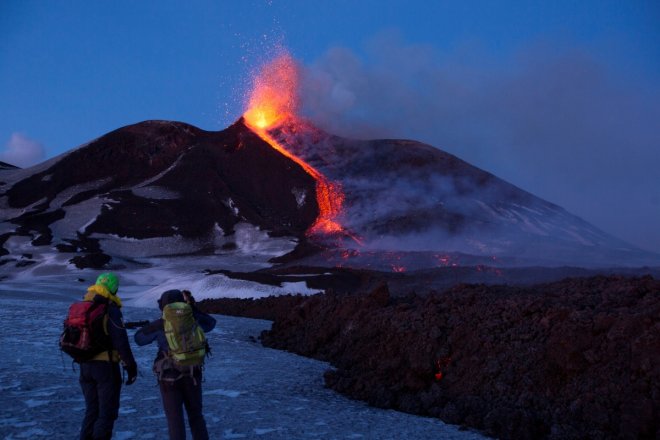
A recent study conducted by the researchers at the University of Leeds has found that global warming could induce an increase in the number of volcanic eruptions in the future.
According to the study, published in the recent edition of Journal Geology, there was less number of volcanic activity in Iceland when the glacier cover was more extensive, but eruptions have drastically increased as the glaciers started melting which resulted in the subsequent changes in surface pressure.
Global warming: The ultimate enemy of mother earth
The new study found that there is a significant reduction in volcanic eruptions between 4500-5000 years ago. This period has witnessed a drastic reduction in global temperatures, and as a result, glaciers started forming on the surface of Iceland which in turn reduced the volcanic activities.
During the study, researchers also found a delay in time between the reduction in atmospheric temperature and the fall in total volcanic eruptions. The time lag is expected to be more than 600 years, and scientists expect similar lag when the temperature rises and volcanic activities increase. Until the dusk of the 'Little Ice Age' a few decades ago, the glaciers in Iceland were in a process of rebuilding, but now, due to global warming, the glaciers have again started melting which will result in an increased number of volcanic eruptions in the coming years.
"Climate change caused by humans is creating rapid ice melt in volcanically active regions. In Iceland, this has put us on a path to more frequent volcanic eruptions," said Graeme Swindles of the University of Leeds.
Swindles said that it is pretty difficult to predict the duration of time lag. However, he confirmed that the change in atmospheric temperature will reduce the pressure under the surface of the Earth which will, in turn, increase the amount of mantle melt, thus resulting in volcanic eruptions.
"The human effect on global warming makes it difficult to predict how long the time lag will be but the trends of the past show us more eruptions in Iceland can be expected in the future," added Swindles.









